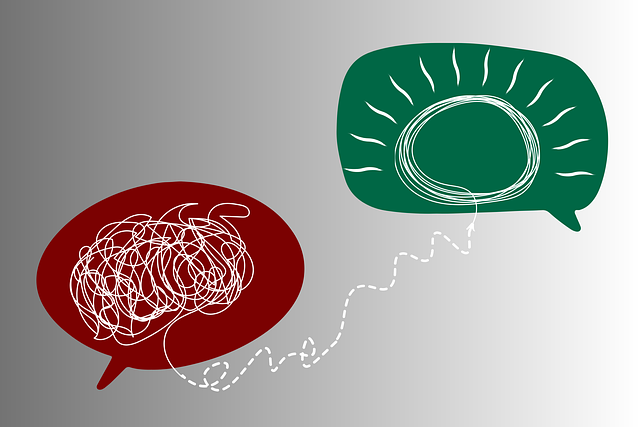Louisville ACT: Enhance Mental Well-being with Effective Coping Skills
Louisville Acceptance and Commitment Therapy (ACT) is a powerful approach to cultivating robust copi…….
In the ever-evolving landscape of mental health treatment, Louisville Acceptance and Commitment Therapy (ACT) has emerged as a powerful and transformative approach. This therapeutic modality, rooted in acceptance and mindfulness principles, offers individuals a unique path to personal growth and well-being. Louisville ACT focuses on helping people embrace their experiences, regardless of their emotional content, and commit to valued actions, thereby fostering a more fulfilling life. This article aims to delve into the intricacies of Louisville ACT, explore its global impact, and provide valuable insights for practitioners, researchers, and individuals seeking effective mental health solutions.
Definition and Core Principles:
Louisville ACT is a form of behavioral therapy that encourages individuals to develop psychological flexibility. This involves accepting one’s thoughts and emotions without judgment, while also committing to actions aligned with personal values. The core components include:
Historical Context:
ACT originated in the late 1980s as a novel approach to clinical psychology. It was developed by Steven C. Hayes and colleagues, building upon behavioral therapy and mindfulness research. Over time, Louisville ACT has evolved and gained recognition for its effectiveness across various populations and settings.
Significance and Broader Landscape:
Louisville ACT stands out in the mental health field due to its unique blend of acceptance and commitment. Unlike traditional talk therapy, it empowers individuals to take an active role in their healing process. This approach is particularly valuable for those struggling with anxiety, depression, trauma, and substance abuse, offering a path to lasting change and improved quality of life.
Louisville ACT has made significant strides internationally, gaining traction in diverse cultural contexts. Here’s an overview:
Trends Shaping Louisville ACT:
The economic aspects of Louisville ACT contribute to its growing popularity and influence:
Technology plays a pivotal role in modernizing Louisville ACT:
| Technological Integration | Impact | Future Potential |
|---|---|---|
| Online Therapy Platforms | Increased accessibility, especially in rural areas. | Expansion of virtual care, allowing remote therapy sessions and ongoing support. |
| Smartphone Apps for Mindfulness | Enhances mindfulness practice between sessions. | Development of personalized apps tailored to individual needs and treatment goals. |
| Virtual Reality (VR) Exposure Therapy | Immersion in safe, controlled environments for exposure exercises. | VR could revolutionize anxiety and trauma treatments by offering varied, controlled scenarios. |
| Artificial Intelligence (AI) | Personalized treatment planning and progress tracking. | AI-assisted therapy may provide real-time feedback and adaptive learning experiences. |
Regulatory frameworks significantly influence the practice of Louisville ACT:
Despite its successes, Louisville ACT faces several challenges:
Proposed Solutions:
Patient Profile: Sarah, a 20-year-old college student, struggled with severe anxiety that impaired her academic performance and social interactions. She sought Louisville ACT therapy to manage her symptoms and regain control over her life.
Treatment Approach:
Outcomes:
Patient Profile: John, a 55-year-old military veteran, carried the burden of post-traumatic stress disorder (PTSD) after serving in a war zone. He sought Louisville ACT to aid his recovery and regain a sense of control.
Treatment Strategy:
Results:
The future of Louisville ACT holds immense potential:
Louisville Acceptance and Commitment Therapy has emerged as a powerful, evidence-based approach to mental health treatment, offering individuals a path toward personal growth and well-being. Its global impact is evident in the increasing demand, research, and cultural adaptations. Despite challenges, Louisville ACT continues to evolve, addressing stigma, improving access, and providing transformative experiences for those seeking help. As the field advances, continued exploration and collaboration will shape its future, ensuring that more people worldwide can benefit from this innovative therapy.
Q: What is Louisville Acceptance and Commitment Therapy (ACT)?
A: Louisville ACT is a behavioral therapy approach that encourages individuals to develop psychological flexibility through acceptance, mindfulness, values clarification, and committed action.
Q: How does Louisville ACT differ from traditional talk therapy?
A: Unlike traditional talk therapy, Louisville ACT focuses on accepting internal experiences without judgment and committing to valued actions, promoting active participation in healing.
Q: Is Louisville ACT suitable for everyone? Can it help with all mental health conditions?
A: Louisville ACT is a versatile therapy that has shown effectiveness across various conditions, including anxiety, depression, trauma, and substance abuse. However, individual responses may vary, and a qualified therapist can determine its suitability for specific needs.
Q: How accessible is Louisville ACT? Can I find therapists in my area?
A: Access to Louisville ACT therapists varies globally. While many regions have increasing availability, rural areas or underdeveloped healthcare systems might face challenges. Online therapy platforms and mobile apps are addressing this issue by providing remote access to care.
Q: Are there any side effects or risks associated with Louisville ACT?
A: Louisville ACT is generally considered safe and non-invasive. However, as with any therapy, individuals may experience temporary discomfort, such as increased anxiety during exposure exercises. Qualified therapists monitor progress and adjust the treatment plan as needed to minimize any potential risks.

Louisville Acceptance and Commitment Therapy (ACT) is a powerful approach to cultivating robust copi…….